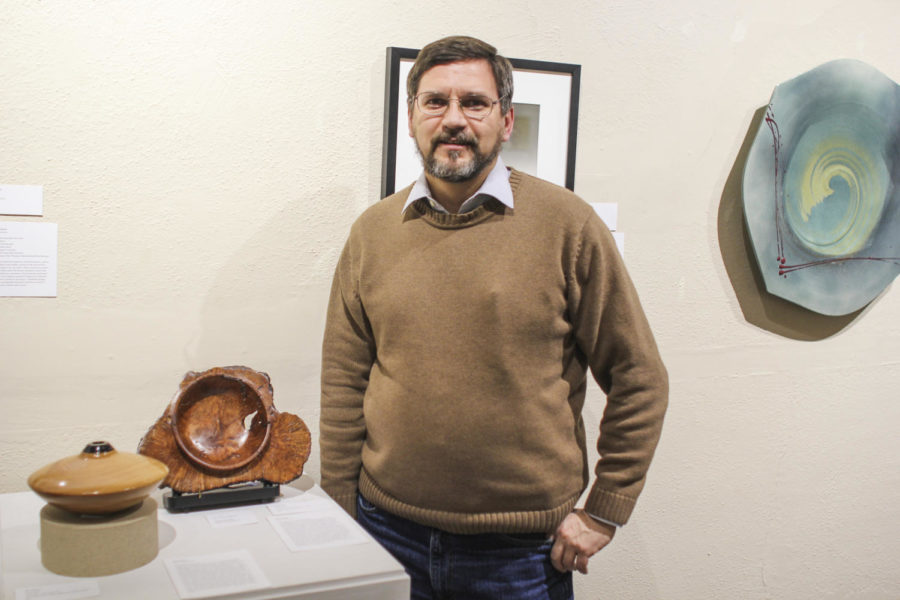Professor shares method for dealing with stress
February 11, 2015
Time management skills have been emphasized to college students since their orientation before their freshman year. It’s one of the most crucial parts of avoiding stress and succeeding academically.
A hectic schedule combined with procrastination leads to a grueling workload at the end of the day and little time and motivation to tackle it.
Arko Mukherjee, president of the Graduate and Professional Student Senate, has encouraged students to get involved and socialize outside of their graduate studies.
Craig Ogilvie, assistant dean of the graduate college, has told incoming graduate students that only focusing on graduate studies will not benefit themselves or their ISU experience.
With midterms fast approaching, students are beginning to feel the stress of the semester. However, students are not the only ones affected by the burden of the college environment.
Faculty can also suffer from stress, letting work go undone until days before its deadline.
Rob Wallace, president-elect of the faculty senate, has encouraged senators to work on time management skills and find ways to reduce stress outside of their job with hobbies and recreational activities.
Wallace, associate professor in ecology, evolution and organismal biology, turns wood into art in the time he has left after tending to the demands of his job.
“I’ve gotten into artwork, kind of a ‘using both sides of the brain’ type of thing,” Wallace said.
Wallace worked with wood in high school and rediscovered the craft after his daughter was born. Turning wood is a form or woodworking that involves using a lathe to hold and turn a piece of wood so an artist can carve it.
“It was a quiet form of woodworking. When my daughter was born, I couldn’t go in the basement and use all my noisy power tools,” Wallace said.
Wallace has worked seriously with woodturning for the past 10 to 12 years.
He enjoys getting creative through art, which he can’t do while teaching biology classes.
“All of this is foreign to me — the art and the culture.” Wallace said. “It’s like going back to school.”
Wallace’s wooden artwork has been on display at the Octagon Center for the Arts for more than five years now.
The Octagon Center is a non-profit organization and has only one permanent collection, which was donated to the center in 1993. The rest of the artwork is a part of exhibitions that will travel from place to place.
Wallace is a member of the Board of the Trustees for the Octagon Center, as well as a member of the American Association of Woodturners, or AAW.
Despite his involvement in multiple organizations and a demanding schedule as a professor, Wallace still finds time to spend on the craft.
“For anybody that goes to college, the number one thing is time management, what your priorities are and how you manage your time,” Wallace said.
Wallace’s artwork is on display at the Octagon Center, including a piece that won first place in a recent competition.
While Wallace turns to artwork to unwind, Kathy Hanisch recommends stress-reducing techniques for the less artistically-inclined population.
“There’s no cookie-cutter way to relieve stress,” said Hanisch, senior lecturer in psychology. “What stresses you out may not stress me out.”
Hanisch explained that stress can be divided into two categories. Distress refers to the stress with negative effects on the body, whereas eustress can be positive and can help performance during something like a big job interview.
According to Hanisch, distress in the workplace can have a variety of causes. Too much to do, not knowing what to do, not knowing how to do it and not having the proper resources to do it are all factors that can prevent work from getting done.
“Making sure supervisors are communicating what they want, what they need and how the company is doing,” Hanisch said on the importance of communication.
Hanisch, whose research has included job satisfaction and other job attitudes, said stress can occur in both employees and managers, each with a different set of stressors.
Administrative stress can be due to decision-making issues and managing large groups of people.
Problems occur when people respond to stress with negative behaviors.
“It’s a big deal because job performance goes down. People will engage in behaviors companies don’t want them to, like not showing up to work, which makes productivity go down,” Hanisch said. “If the company is more successful, the people are more successful.”
Hanisch recommended an Employee Assistance Program for staff members who may be experiencing work-related stress.
According to its website, the EAP offers counseling in balancing work and personal life, financial or legal concerns and work stress, at no additional cost to the employee.
More information on the Employee Assistance Program can be found through the Iowa State website.
As far as self-help extends, there are different ways to reduce stress independent of a counseling service. Organizing yourself and having a support system can be helpful, and maintaining a regular eating and sleeping schedule will help your body calm down, Hanisch said.
“They do say laughter is really good,” Hanisch said. “Anything you can do to relax.”
With midterms just around the corner, all students at Iowa State could use some stress-relief tactics.







